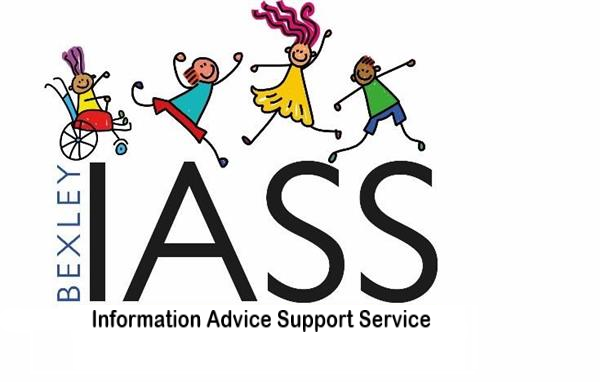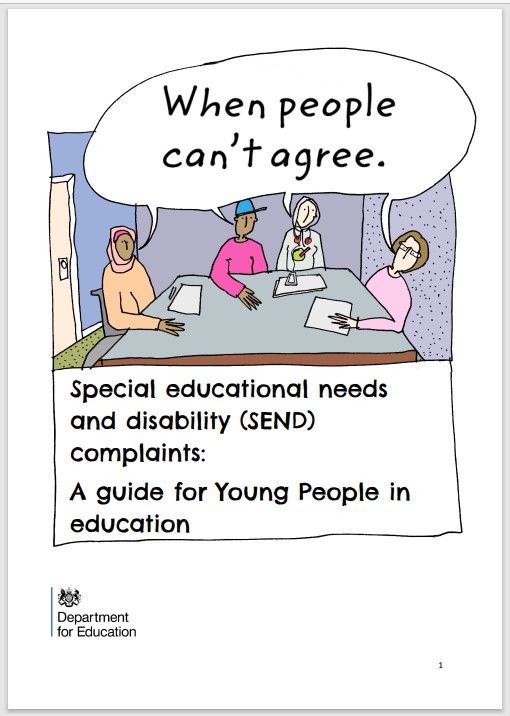UNDERSTANDING YOUR RIGHTS
Understanding the law will help you in your journey through special educational needs and disabilities system.
Bexley IASS has developed a page which breaks down all of the following:
Legislation: This is the Law
( Our section on Law will also give you definitions of what a Green Paper is and a White Paper and why they are important )
Regulations: Regulations enforce the requirements of Legislation (The Law)
Statutory Guidance: Guidance sets out what schools, colleges and other organisations such as the Local Authority must do in order to follow Legislation (The Law)
We have provided links below to take to you to each area of Legislation, Regulations and Guidance and we have provided links to Easy Read versions of the document where they have been made available.
The staff at Bexley IASS are trained to understand the legislation, regulations and guidance so, if you have any questions relating to your special educational need please contact us.
You will find our contact details at the foot of each document.
Your Rights in Education
If you are staying on at College after 18 years of age.
Once a young person is 18, they would normally be classed as an adult learner. In most cases, young people cannot stay on at a school beyond 19 as schools are not legally set up to provide education for adult learners, as colleges are.
In exceptional cases, a young person may be able stay on at their school in order to finish a course started before their 18th birthday. This will depend on individual circumstances and will need to be discussed with the school and local authority.
Some special schools have developed separate further education provision for 19-25 year olds.
If you are planning to go to University.
If you have an EHCP and you plan to continue onto University, your EHCP will cease.
However, as a student with Special Educational Needs and /or a Disability you can apply for Disability Student Allowance.
Disabled Students’ Allowance (DSA) is support to cover the study-related costs you have because of a mental health condition, long term illness or any other disability.
This can be on its own or in addition to any student finance you apply for.
The type of support and how much you get depends on your individual needs – not your household income.
How much will I get?
The amount is decided by and is capped for the 2022 to 2023 academic year:
Undergraduate and postgraduate students can get up to £25,575 a year for support.
Unlike any student loads you may get, the DSA is not paid back.
What kind of support can I get?
You may be able to have:
- specialist equipment, for example a computer if you need one because of your disability
- non-medical helpers, for example a British Sign Language (BSL) interpreter or specialist note taker
- extra travel to attend your course
- other disability-related study support, for example having to print additional copies of documents for proof-reading
How do I apply:
You can Apply on the Government website when you make an application for student finance: DSA Application
If you have an Education, Health & Social Care Plan (EHCP)
Sometimes your school or college may not be able to give you all the support you need, and if you are not making expected progress you may need to apply to have an Education, Health and Social Care Needs Assessment to find out what extra support you need.
An EHCP is a legal document.
It clearly states the support you should have to ensure you are supported at School or College. An EHCP will state which school you should attend and clearly list what practical things the school can do to help you.
Below is a short film (3.18 minutes) which will explain more about what an EHCP is.
I would like to apply for an Education Health & Social Care Plan (EHCP). How do I do this?
You can apply for an EHCP until you are 25 years of age and still in education (this includes Apprenticeships, Supported Internships and Traineeships)
The first step to getting an EHCP is to fill in an application for an EHC Needs Assessment
To make an application for an EHC Needs Assessment in Bexley, you will find the application here: EHC Needs Assessment Application
The link below will open a document that has been produced by the Council for Disabled Children gives you some examples of good EHCP’s.
How often is the Education Health & Social Care Plan (EHCP) reviewed?
When a child or young person has an Education, Health and Care plan (EHC plan) there is an ongoing requirement for the EHC plan to be reviewed by the local authority at least annually. This is referred to as the Annual Review.
The Annual Review is more than just a review meeting, it is a process that must be completed on or before the anniversary of when the EHC plan was first issued or the anniversary of the last review.
An Annual Review must be undertaken in partnership with the child and their parent or the young person, and must take account of their views, wishes and feelings, including their right to request a Personal Budget.
The Local Authority have said they want to cease my EHCP, can they do that?
This is referred to as Cease to Maintain
The Local Authority must not cease to maintain the EHC plan simply because the young person is aged 19 or over but there are some clear times when a plan should end:
- A young person aged 16 or over leaves education to take up paid employment (including employment with training but excluding apprenticeships)
- The young person enters higher education (University)
- A young person aged 18 or over leaves education and no longer wishes to engage in further learning
- The young person turns 25
If you are concerned the EHCP is being ceased but you want to continue in education, an apprenticeship, a supported internship or a traineeship you must call or email your SEN Case Officer at the Local Authority.
Here is a list of their contact numbers: EHCP Case Officers
Your Rights in Work (Including Apprenticeships & Traineeships)
If you have decided to look for work , it’s important to be aware of your legal rights.
The Equality Act 2010 makes it unlawful for an employer to discriminate against disabled people. Employers are also required to make ‘reasonable adjustments’ to prevent disabled people being placed at a disadvantage.
For advice on organisations that can support you to prepare for work and with careers advice including:
- CV Writing
- Finding a job
- Job Applications
- Employment Support
Click onto the Bexley Local Offer Employment and careers advice page, age 16-25
The short video from the Equality & Human Rights Commission below will explain what is meant by Reasonable Adjustments in the workplace. (1.39 minutes)
It’s important to remember that all employers have a legal duty to make reasonable adjustments. However, they may be worried about the extra costs.
You may need to tell them about the Governments Access to Work scheme.
Access to Work is a government programme aimed at supporting disabled people to start or remain in work. It can help by paying towards:
- Communicator, advocate or BSL interpreter for a job interview, if you’re deaf or have communication difficulties
- Special aids and equipment
- a support worker, such as a reader
- Travel to work, which can include taxi fares
Having your views heard
Your views and opinions matter and there are laws to ensure your views are heard.
At some point you may need to make important decisions about whether you want to continue in education, go to college or university, be a part of reviewing your own EHCP, apply for a job or choosing to live independently. These are all decisions where your views are really important because they will affect your future.
Below you will find links to
The Bexley Local Offer Young Peoples Section, aged 14-25.
How Bexley IASS can advice and support you.
When People Can’t Agree – A Guide for Young People in Education
The following guide provides advice for young people aged 16-25 who are unhappy with their special educational needs (SEN) support at school or college and need help and guidance to sort those problems out.
The aim of this booklet is to describe how you, as a young person aged 16 or above, can do this.
The guide below will show you where you can get more information and support if you need it.
This guide is intended for young people who are between 16 and 25 years of age and who have a special educational need or a disability.
This Department for Education document has been produced in Easy Read and covers the following topics for young people between 16 & 25 years of age:
Getting the support you need at school or College:
Getting help if you are unhappy with the Health Support you are receiving.
Further help and how to complain to the Local Government & Social Care Ombudsman
Going to disagreement resolution
Going to mediation
Going to tribunal
What to do next if you are still unhappy
Please click on the image below to open and download the document.

